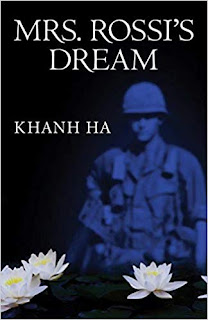Graywolf Press, 2019
193 pp
paperback
"No one would a done a thing like that on purpose. It's against nature."
Another of my most anticipated books for this year, I'm happy to say that Benjamin Percy's Suicide Woods didn't let me down. I worry sometimes that something I'm really looking forward to reading is going to just tank, but any fear on that score was swept aside once I started reading this book. It is a collection of ten short stories, well, actually, nine short stories and one nearly novella-length tale at the end; it's also a book that actually lives up to the blurb by author Luis Alberto Urrea, who says right there on the front cover for all to see that it
"deals in a shivery fear, a dreamlike unease, a sense of eldritch hallucinations creeping toward us."Never a truer word spoken. Word of warning: if you're not inclined toward the weird, eerie, or sometimes downright creepy, pass. This is not the book for you. On with the show.
It's always a good sign, I think, when a collection of stories like this opens with one that sets the tone and acts a sort of teaser for what to expect throughout the rest of the book; this one certainly passes that test with flying colors. The first story, "The Cold Boy" begins with a description of the forest as "hardwood," where the sycamore and oak trees would be completely bare if not for the hundreds of crows, "huddled like little men in black jackets." The sounds they make create "rusty voices" that are audible a quarter of a mile away where a man named Ray stands on a frozen pond in the middle of a Minnesota cornfield, where there are "two sets of footprints, yet he is alone on the ice." First of all, when crows make an early appearance in a story, things rarely turn out for the best since everyone knows that the crow is a harbinger of doom; then, of course, there's the immediate question of why there are two sets of footprints if Ray is out there by himself. At this point, which is just two paragraphs in, the sense of something ominous starts making itself known in my blood, creeping under my skin as if to mirror the feeling of cold that rises and creeps up Ray's legs and into his chest, where his "heart feels frosted with tiny white crystals." And after we realize what's going on here (which I won't divulge), Percy makes a shift into the realm of the unexpected, throwing his readers (well, me anyway) completely into off-kilter mode, where, quite honestly, I stayed throughout the entire book. At the same time, there's more to this collection opener than just the eeriness and the unsettling creep factor; for me it begins a clear line of thought running from this first story through the last, in which attempts to alter or conquer nature, both human and otherwise, turn into the stuff of nightmares.
I don't want to go through each story in the book; while there were only a few that left me with what I call FTG (Failure to Grab) syndrome, only natural for me in the case of an anthology of stories, for the most part I was beyond impressed. The best stories for me included "The Cold Boy," "Heart of a Bear," and "The Balloon," while the absolute chart toppers were the titular and breathtaking "Suicide Woods," which made me put the book down for a few hours before returning to it and "The Uncharted," a story I visualized while reading much more than any of the others in the collection. Both of these were superb, and not only because of their eerieness and the fact that they both completely messed with my head. "The Dummy," "Dial Tone" and most especially "Writs of Possession" all resonate in our current social/political/economic climate, with the latter being one of the saddest stories I've ever read in my life while certainly one of the best written of the bunch. The blogger at Minnesota Monthly reviewing this book quotes Percy as saying about the writing of this story that "It's like I took this larger portrait of America and dropped it, and it shattered," and after I read that statement, I realized how perfectly it describes what he's done here.
If you are a reader who prefers uplifting, follow-the-dotted-line sort of stories or stories full of nice nice and happy endings, or who demands fully fleshed-out characters in your reading, move along. That sort of thing you just won't find here. It's going to appeal more to those people who enjoy books along the lines of what I call "strange with purpose," where thinking is required, which is pretty much the bread and butter of my fiction reading these days. It is unforgettable, really, and I can certainly recommend it.

















